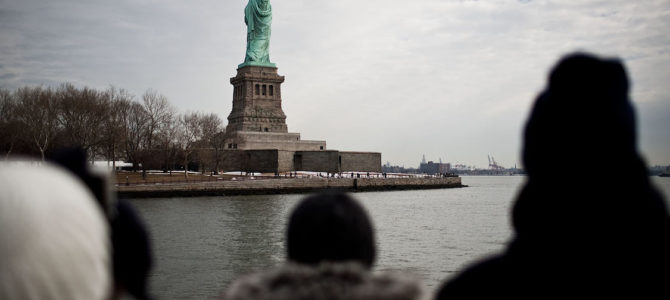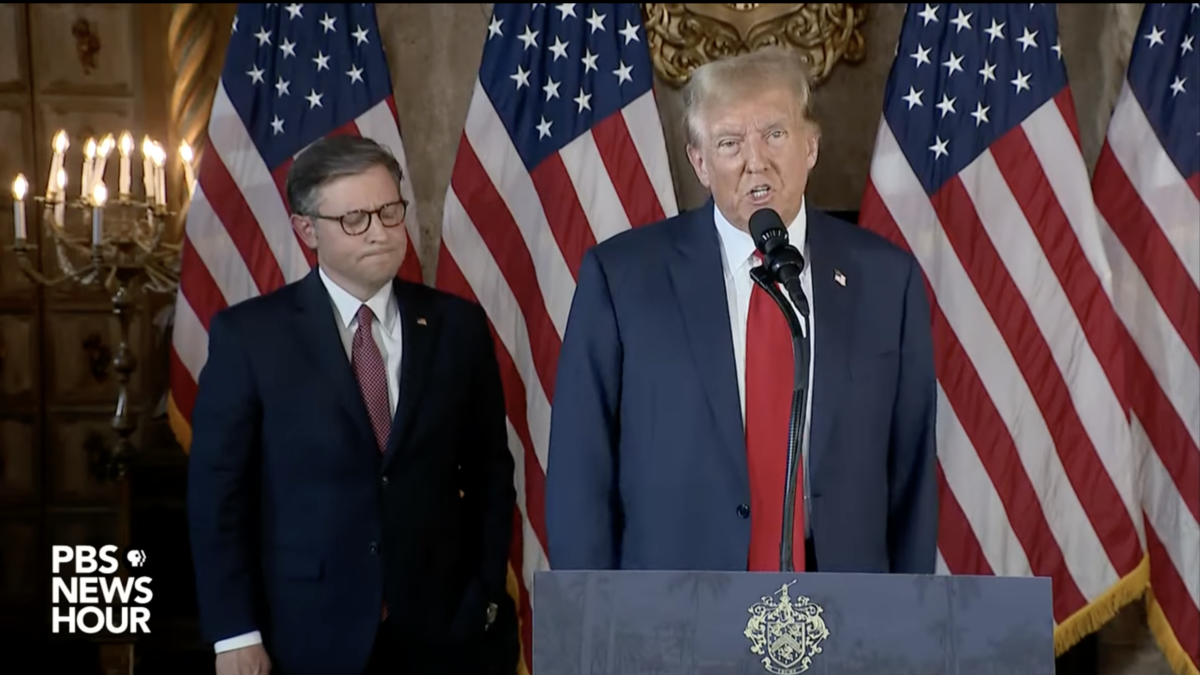
This article quotes vulgar language.
President Trump’s remark last week about “shithole” countries was widely decried as racist and offensive, and although his phrasing was crude and unnecessary, Trump wasn’t wrong about the actual countries in question. Haiti, El Salvador, and many countries in Africa—and all over the world, for that matter—are indeed a horrible mess by any objective measure.
But they’re not this way because of their people. They’re this way because of their corrupt rulers and shitty governments. It’s not really about America at all. Any country without constitutional, limited government will end up a shithole, no matter who lives there.
Trump is probably incapable of articulating that distinction, but it needs to be made. America isn’t great or exceptional because Americans are uniquely virtuous or somehow better than people from poor countries. America is exceptional because of our system of government and the constitutional order our Founding Fathers bequeathed us. That’s it. We have that system because everything aligned at just the right moment for the Founders, who brought forth a new nation, conceived in liberty. In that sense, we Americans are especially fortunate. Time and circumstance, not the singular virtue of the American people, conspired to make America uniquely free.
When we talk about “American exceptionalism,” that’s what we’re talking about. Americans, like every other people, are subject to the vicissitudes and weaknesses of human nature. We’re not special in that regard. Writing about the character of America’s young democracy, Alexis de Tocqueville saw that Americans were different than the peoples of Europe, who arrived at democracy through violent revolution that “lead them to shun each other and perpetuate in a state of equality the animosities that the state of inequality created. The great advantage of the Americans is that they have arrived at a state of democracy without having to endure a democratic revolution, and that they are born equal instead of becoming so.”
Although America was burdened by the evil of slavery from the beginning, it was spared the baggage of aristocracy. We were “born equal” in the sense that our republic was founded on a candid assessment of human nature. Most American presidents have understood this—even ones like Calvin Coolidge, who was no progressive on immigration (he signed off on the National Origins Act of 1924, which was specifically designed to keep Italians, Slavs, and Eastern European Jews out of America). In a 1925 speech to the American Legion Convention, Coolidge said:
It is true that we live under most favorable circumstances. But before we come to the final and irrevocable decision that we are better than everybody else we need to consider what we might do if we had their provocations and their difficulties. We are not likely to improve our own condition or help humanity very much until we come to the sympathetic understanding that human nature is about the same everywhere, that it is rather evenly distributed over the surface of the earth, and that we are all united in a common brotherhood.
Our Constitutional Order Is Based On Human Nature
This point about human nature can’t be stressed enough. If we don’t understand human nature the way the Founders did, we won’t fully grasp why our government is designed as it is—and we won’t be determined to preserve it.
James Madison’s famous line in Federalist 51, “What is government itself, but the greatest of all reflections on human nature?” nicely sums up our situation—if we understand his use of the phrase “reflections on.” As Eugene Volokh has noted, Madison isn’t saying that constitutional government and separation of powers reflect or stem from human nature. He’s saying that the need for separation of powers stems from the corruption of human nature, just as the need for any government is itself a general indictment of human nature.
Consider the line in context:
But the great security against a gradual concentration of the several powers in the same department, consists in giving to those who administer each department the necessary constitutional means and personal motives to resist encroachments of the others. The provision for defense must in this, as in all other cases, be made commensurate to the danger of attack. Ambition must be made to counteract ambition. The interest of the man must be connected with the constitutional rights of the place. It may be a reflection on human nature, that such devices should be necessary to control the abuses of government. But what is government itself, but the greatest of all reflections on human nature? If men were angels, no government would be necessary. If angels were to govern men, neither external nor internal controls on government would be necessary. In framing a government which is to be administered by men over men, the great difficulty lies in this: you must first enable the government to control the governed; and in the next place oblige it to control itself. A dependence on the people is, no doubt, the primary control on the government; but experience has taught mankind the necessity of auxiliary precautions.
The Founders understood deeply that the need for government was proof enough that men are not angels, and need governing. Their genius was to realize that, given human nature, the only way for people to govern themselves in a way that preserves liberty and guards against tyranny is for the various branches of government to be divided and balanced against one another. The corrupted state of human nature would itself ensure that no one branch usurped the others, and in that sense would guard against tyranny and corruption: ambition would counteract ambition.
It took a remarkable convergence of events for America’s Founding Fathers to have the chance to institute this republican vision of government. The British Empire’s mismanagement of its American colonies coincided with the emergence of a generation of Americans inspired by the European Enlightenment and determined to create something new in the world: government by consent of the governed, with a system of checks and balances on government power, anchored in the conviction that all men are created equal.
All of this is probably lost on Trump, whose motives for deriding shithole countries stem from a misunderstanding of who we are and why America is exceptional. People can’t help it if they were born in a terrible country, and it doesn’t make them in any way inferior. That’s precisely why so many of them come to America and prosper: our constitutional order protects them from the kinds of things that turned their countries into shitholes—corruption, oppression, government theft, and violence of every kind.
We Americans escaped that fate, not because we’re better, but because we were fortunate enough to be born free.







